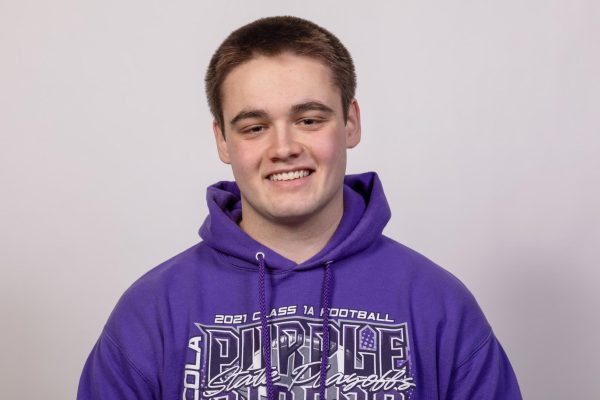Give ‘Insatiable’ a chance on Netflix
September 5, 2018
On Aug. 10, 2018, Netflix debuted its drama/comedy series “Insatiable,” but even before it was released in its entirety, it was under fire for … a lot of reasons. But, I have a theory about that and that theory is: “Insatiable” deviates from the plot we’re used to seeing, from the likable characters we’re used to seeing.
See, the show centers around Patty Bladell (Debby Ryan), a former fat girl who is dealing with her past-tormentors turned friends/prospective boyfriends, a consuming crush on her pageant coach (because, yeah, she starts doing beauty pageants) and she does some questionable things.
Initially, this show’s trailer received a ton of criticism because, I think, it came across as a fat-shaming thing. I think prospective viewers saw it as Patty not being pretty enough when she was overweight to do everything she wanted to do and now that she’s lost weight, everything can go right for her. The storyline seemed toxic.
While, yes, Patty is doing things she felt she wouldn’t have had the opportunity to partake in while overweight, she’s still dealing with the leftover insecurity of being fat. She’s motivated by revenge and other selfish reasons. The talking donut she encounters while high at her baptism tells her: “You’ll never be satisfied unless you take what you want.”
If that last sentence didn’t interest you—maybe it offended you instead, or thoroughly confused you—then, this show isn’t for you.
Maybe people were expecting Debby Ryan’s character to be a role model of sorts, based off of her previous career on the Disney Channel. Most of the characters are very self-involved, and a lot of their conflict comes from trying to get what they want. The dialogue is transparent; there isn’t a lot of subtext because the characters are very transparent with their motivations.
It’s surreal, it’s outlandish, it’s “woke,” as the kids say. But this show covers topics and themes and problems that aren’t normally addressed in media. As terrible as the characters’ choices are, there’s an underlying base of understanding. The transgendered female that Patty runs into at the bikini dog wash (ironically conjured up to raise money for eating disorders), gives insight on what it’s like to deal with gender dysphoria.
Patty’s best friend Nonnie is dealing with a sexuality crisis. Patty is dealing with body dysmorphia. Patty’s pageant coach, Bob, is struggling to balance his life. Patty’s mother is dealing with alcoholism. Dee Marshall, an out-of-town contestant for Miss Magic Jesus (Patty’s first pageant), is fat shamed but spews some words about self-love in response. Some of the other kids are dealing with the dawn of impending drug addictions. There’s commentary about parents’ expectations of their kids, and on the flip, kids’ expectations of their parents.
This show is kind of bizarre. There’s really no one to root for, I guess. There isn’t a stand-out “good guy.” It’s definitely not for everyone, but for the people that get it, it’s kind of indescribably genius.
Megan Keane is a senior psychology and English major. She can be reached at 581-2812 or at [email protected].











































